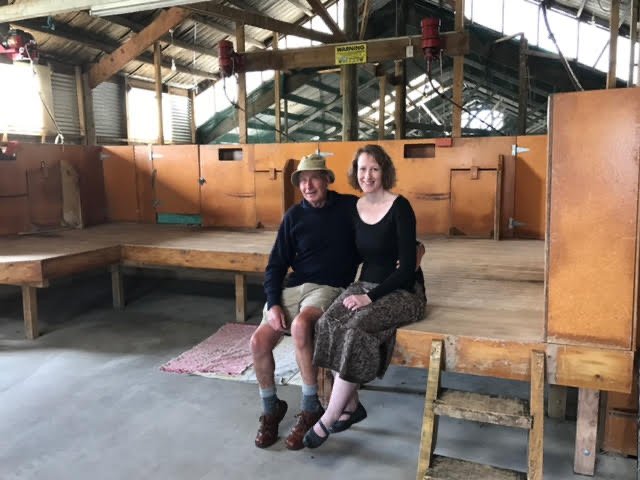
A woolshed in Peel Forest will be hosting a night of sung poetry later this month.
Poet Glenn Colquhoun said he had been exploring sung poetry in two new poetry collections, one Myths and Legends of the Ancient Pākehā which were based on the way sung poetry first arrived in the country, including: hymns, sea-shanties, clapping and skipping songs, ballads and nursery rhymes.
His other collection was Ngā Wāhine E Toru/Three Women which was a collection of poetry in Māori.
Mr Colquhoun said the poems were based on traditional Māori poetic forms; and were sung in Māori and recited in English.
‘‘I guess all poetry started as sung poetry and only got written down when writing was invented. So I was inspired to explore those oral roots by first being exposed to sung poetry in te reo Māori.’’
While he has read his poetry all over the country in the last 25 years, he could not remember performing in Geraldine before.
‘‘And never in a woolshed, so I’m super keen to do that!’’
He said after talking about poems on RNZ National he was contacted by Belinda Roberts (at The Page and Post Booksellers in Geraldine) and Anah Aikman (who would be the MC on the night).
‘‘What I like about this event is that Belinda and Anah and I are keen to also hear songs that are important to other people’s families too.
‘‘We want to make some time available for people to sing their own songs in their own languages — whether those are favourite nursery rhymes or songs that tell the stories of their own background.
‘‘Sometimes we struggle to be as inclusive as we can be in our country, and end up arguing between our various cultures a lot. We often preach to each other or wag our fingers and say blah blah blah — but when we simply sing about what touches us and soothes us in our respective worlds then we open gaps in ourselves and become vulnerable and approachable.
‘‘We see the joy and sorrow in each other. And we start to cross over those small bridges.
‘‘The songs are really gentle ways of speaking to each other.’’
He said he was a poet, not a performer.
‘‘But there is a part of poetry which relies on performance.
‘‘I think it is the poems that demand the performance — rather than the desire to perform that drives me.’’
As a child the poet said he was both quiet and introspective — with a big imagination — ‘‘but also a loud mouth show off too!’’.
‘‘My poor brothers and sisters.’’




